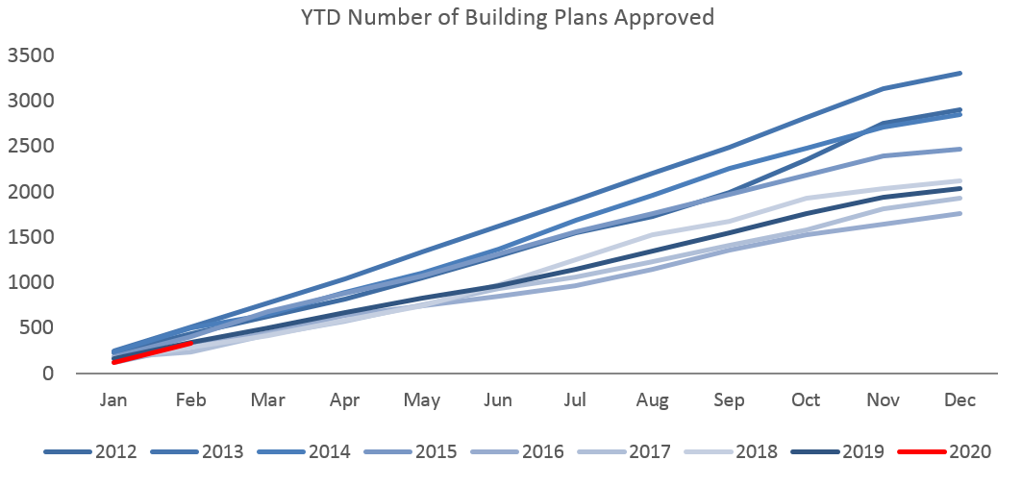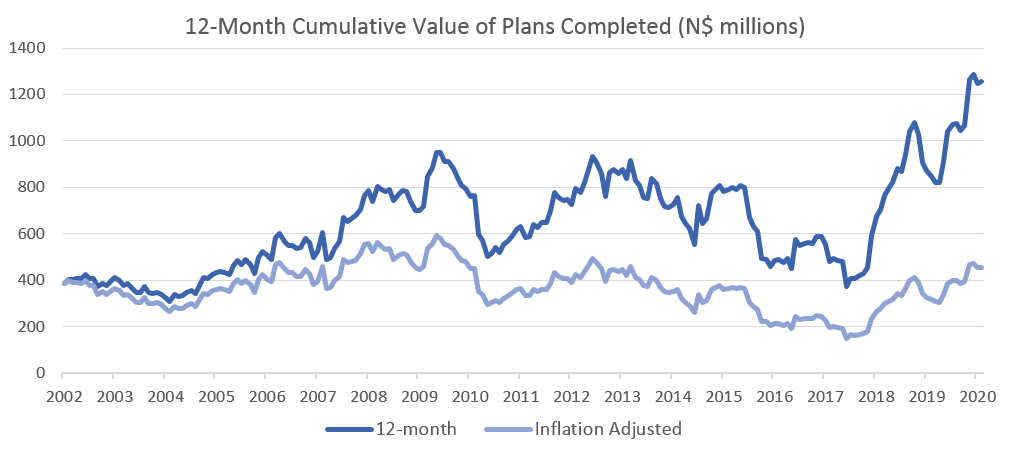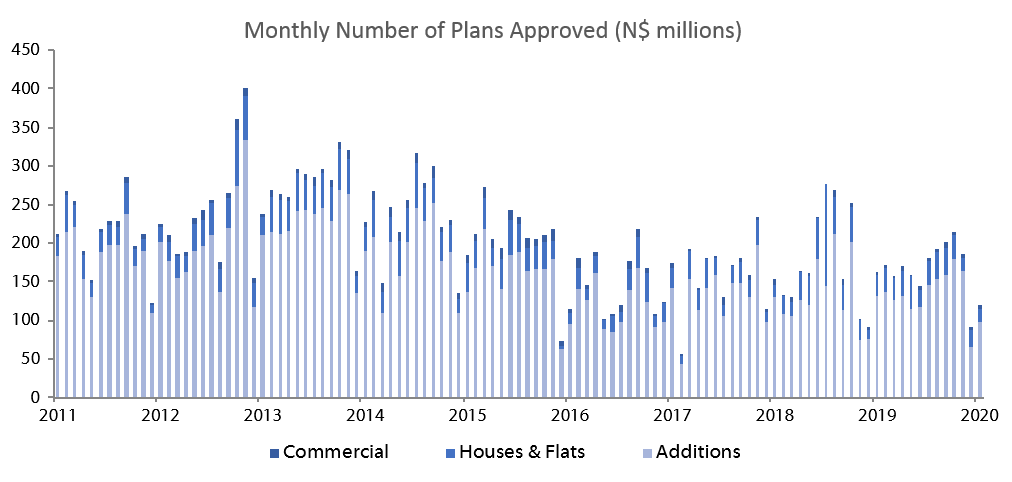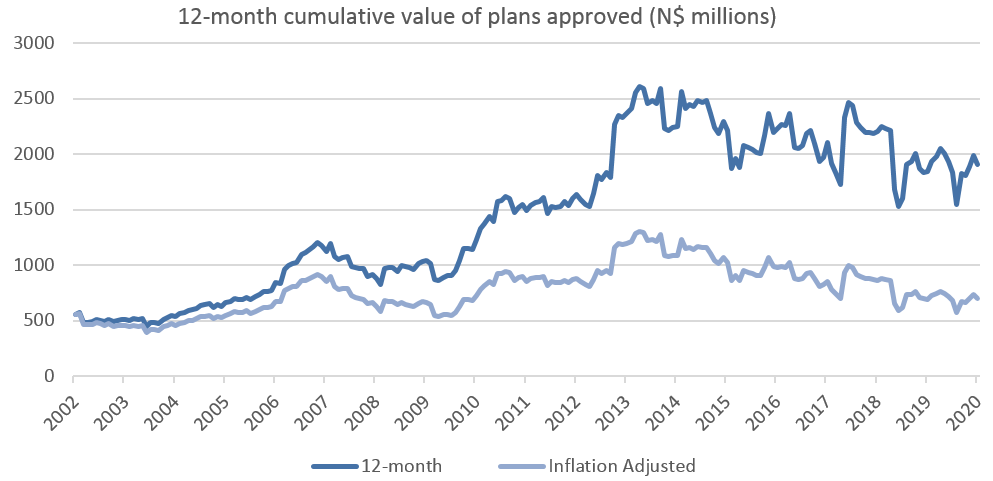
A total of 169 building plans were approved by the City of Windhoek in March, representing a 17.6% m/m decrease from the 205 building plans approved in February. In monetary terms, the approvals were valued at N$142.5 million, a decrease of N$82.4 million compared to last month. The number of completions for the month of March stood at 275, valued at N$218.4 million. The year-to-date value of approved building plans reached N$556.7 million, 3.1% lower than in the first quarter of 2019. On a twelve-month cumulative basis, 2,035 building plans have been approved as at the end of March, a decrease of 7.2% y/y. The 12-month cumulative value of plans approved reached approximately N$1.97 billion, a decrease of 0.5% y/y.

Additions to properties made up 154 of the total 169 approved building plans recorded in March. This is a 6.1% m/m decrease in additions from the 164 additions recorded in February. In the first quarter of the year 416 additions to properties have been approved with a value of N$172.9 million, a 28.2% y/y drop in terms of value. 241 additions worth N$190.0 million were completed during the month.

Only 10 new residential units were approved in March, 18 units fewer than in February and the lowest number of approvals in a single month since December 2015. In value terms, N$10.5 million worth of residential units were approved in March, 90.3% less than the N$108.6 million worth of residential approvals in February. 55 New residential units have been approved in the first quarter of 2020, 38.2% less than during the corresponding period in 2019. The year-to-date value of residential approvals reached N$136.9 million, 43.3% lower than during the first quarter of 2019. 33 new residential units worth N$22.9 million were completed during the month.

Commercial and industrial building plans approved in March amounted to 5 units, worth N$89.1 million. This is 8 units fewer than approved in the prior month, but an increase of 306.2% m/m and 1,355.1% y/y in value terms, although this is from a low base. Year-to-date, 24 plans for commercial and industrial purposes have been approved, valued at N$247.0 million. On a rolling 12-month perspective the number of commercial and industrial approvals have increased to 63 units as at March, compared to the 38 approved over the corresponding period a year ago. One commercial and industrial unit worth N$5.5 million was completed in March.

Building plan approvals for Q1 of 2020 remained more or less in line with Q1 2019 with three more approvals in Q1 2020 compared to 2019, but a decrease of 3.1% y/y in terms of value at N$556.7 million. This data precedes the lockdown restrictions imposed by government.













